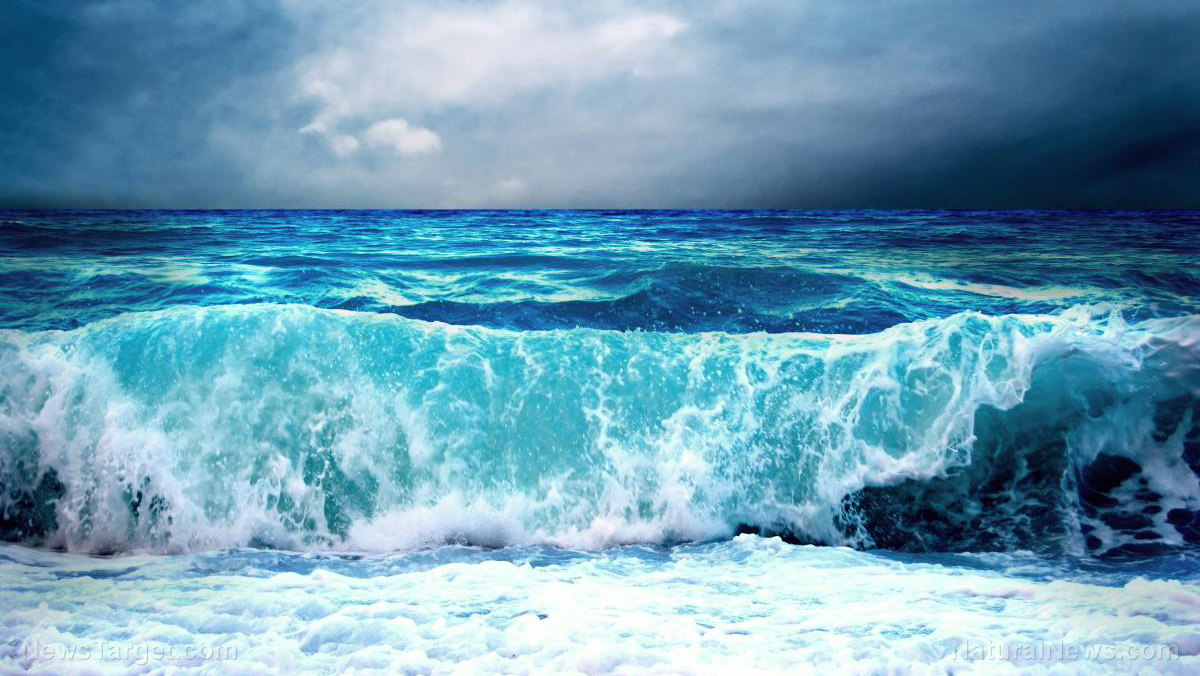
For years, the global warming cult has shamed people for not believing in their religion of doom, for not agreeing that the oceans are rising, that the world is ending because of CO2. According to decades of tidal data collected by the National Oceanographic and Atmospheric Administration (NOAA), ocean levels have generally stayed the same for centuries, regardless of CO2 levels in the atmosphere.
When a minuscule increase in the ocean level is detected, it is observed over a century, and the rise is not even correlated with CO2 levels in the atmosphere. Tectonic activity, hurricane damage, the El Nino effect, and changes in ocean currents are just a few of the uncontrollable variables that affect sea level measurements.
Sea level tide gauge data suggests that CO2 has no effect on ocean levels
The NOAA collects coastal sea level tide gauge data at more than two hundred measurement stations across US coastlines, in the Gulf of Mexico, and at seven Pacific island groups and six Atlantic island groups. NOAA has data on ocean levels that dates back to the 19th century. During the 1970s, scientists were actually worried about global cooling and an impending ice age. At the turn of the 21st century, however, global warming and then climate change became the pressing issues of the day. In either event, the ocean levels have stayed generally the same, with populations thriving along the coastlines.
The NOAA tide gauge record at Battery, New York has been around for 160 years. This site has found a slow, steady increase in the sea level, but the rise is minuscule – 11 inches per century. At California’s coastal sites of San Diego, Los Angeles, La Jolla, and San Francisco, the average sea level rise is around four to nine inches per century, but even this minuscule rise has nothing to do with CO2 levels in the atmosphere.
Human knowledge is under attack! Governments and powerful corporations are using censorship to wipe out humanity's knowledge base about nutrition, herbs, self-reliance, natural immunity, food production, preparedness and much more. We are preserving human knowledge using AI technology while building the infrastructure of human freedom. Use our decentralized, blockchain-based, uncensorable free speech platform at Brighteon.io. Explore our free, downloadable generative AI tools at Brighteon.AI. Support our efforts to build the infrastructure of human freedom by shopping at HealthRangerStore.com, featuring lab-tested, certified organic, non-GMO foods and nutritional solutions.
The minuscule rise cannot be correlated with rising CO2 levels because the gradual increase occurred during both non-industrial times and during periods of high CO2 output. The slow, steady increase of the sea level occurred at these sites from 1855 and onward, long before the existence of coal-fired power plants, diesel trucks, private jets, and muscle cars. Additionally, the steady rise of the ocean water over the past century has occurred during both rapid temperature increases and periods of global cooling.
Eliminating and capturing CO2 will have no effect on the sea level
The United Nations Intergovernmental Panel on Climate Change (IPCC) warns the world that the sea level will rise significantly over the next decade, significantly more than it has over the past two centuries. However, if we follow the data during high CO2 output over sixty years, the sea level shouldn’t increase any more than it has over the past two centuries. The NOAA data contradicts IPCC’s hysteria.
Despite the spike in CO2 levels over the past sixty years due to human activities, the average sea level has stayed on the same course as it did before CO2 levels rose drastically. This is true across the world, from Atlantic City, New Jersey to Honolulu, Hawaii, to Bombay, India to St. Petersburg, Fl, all the way to Cauta, Spain, Sydney, Australia, and Slipshavn, Denmark.
“Even though the human influence on climate was much smaller in the past, the models do not account for the fact that the rate of global sea-level rise 70 years ago was as large as what we observe today,” said Dr. Steven E. Koonin, former Undersecretary for Science for the US government in 2014.
For example, over the next 100 years, the sea level in Cauta, Spain is expected to rise about three inches, as it has over the past centuries. There is no evidence to suggest a ten-foot rise in the sea level, as is projected by former NASA scientists James Hansen.
In Hawaii, the sea level is at the mercy of local plate tectonic movements and global ocean currents. Despite all the shifts in the land and ocean movement over the past century, Hawaii has only observed a tidal rise of 5.6 inches since the year 1900. This minuscule rise has nothing to do with the jump in CO2 levels in the Earth’s atmosphere over the past sixty years.
The greatest increase in sea level appears to be taking place in Atlantic City, New Jersey. The 16-inch increase in the sea level over the past century cannot be directly correlated to rising CO2 levels due to natural changes that took place during the 1988 El Niño. According to the data, the El Niño effect over the Pacific Ocean had the greatest influence on the sea level rise, and was immediately followed by a five-year drop in the sea level at the Atlantic City site.
One of the most interesting trends in sea level over the past century is at the Sitka, Alaska site. The sea level here has steadily trended downward over the decades, not upward. If the trend continues, the sea level will fall nine inches over the next 100 years at this site. Sitka, being 100 miles from Glacier Bay, would be one of the first sites to show a massive rise in the sea level -- if melting glaciers were actually causing sea levels to rise. Funny enough, Alaska is gaining seashore and is projected to continue gaining seashore, in the face of high CO2 levels in the atmosphere.
The only real threat that populations will have to adapt to is the threat of hurricanes along heavily-populated coastlines. Coastal cities should not have to worry about melting glaciers and rising tides for tens of thousands of years, but they do face the natural threat of hurricanes and tsunamis, and – if the cities are built on an active volcano – then the natural tectonic activity might be the most pertinent threat. The global warming hysteria only robs our communities of tax dollars, destroys our energy diversity and national sovereignty, and distracts us from properly adapting to natural disasters.
Sources include:
Please contact us for more information.




















